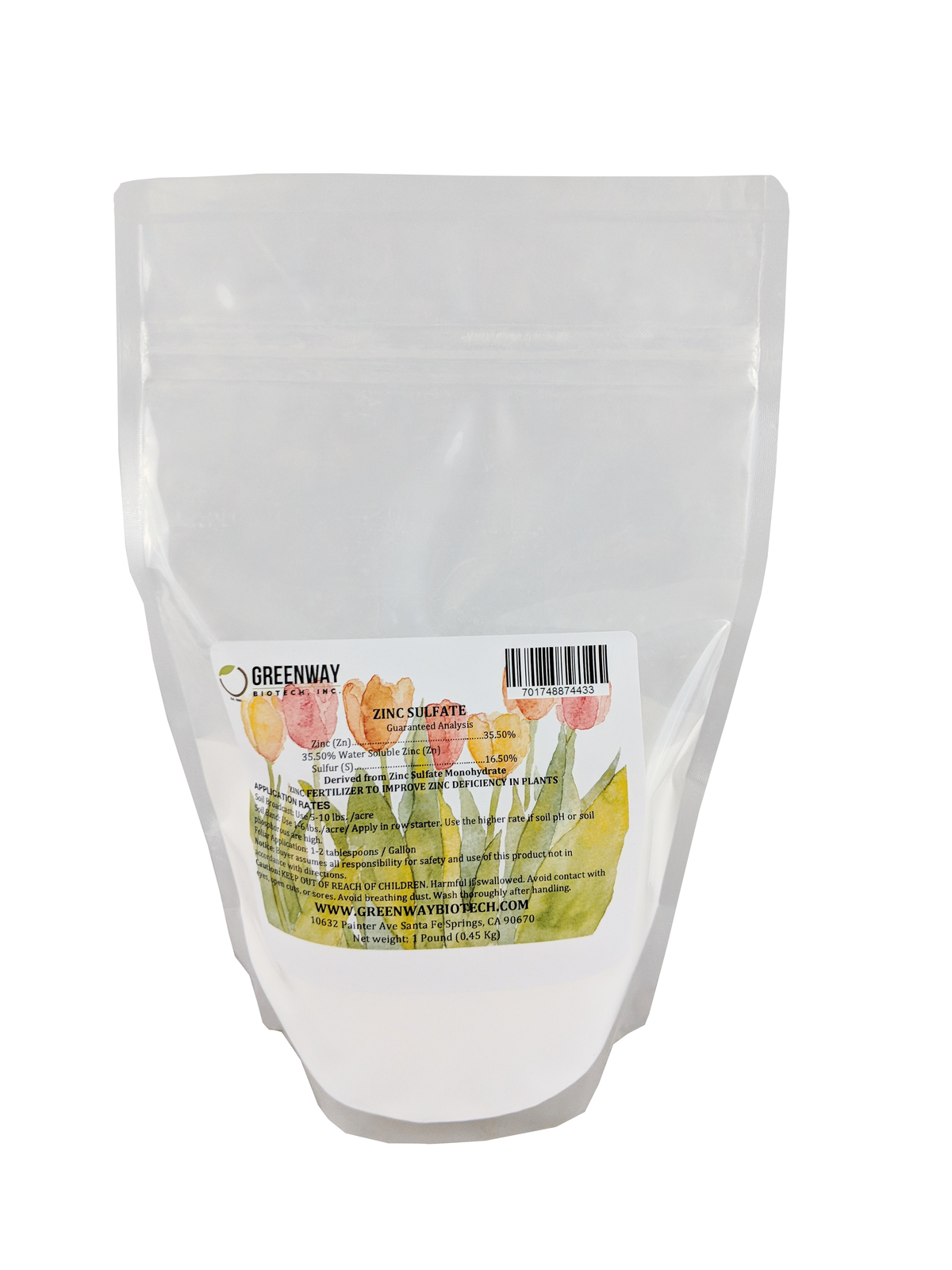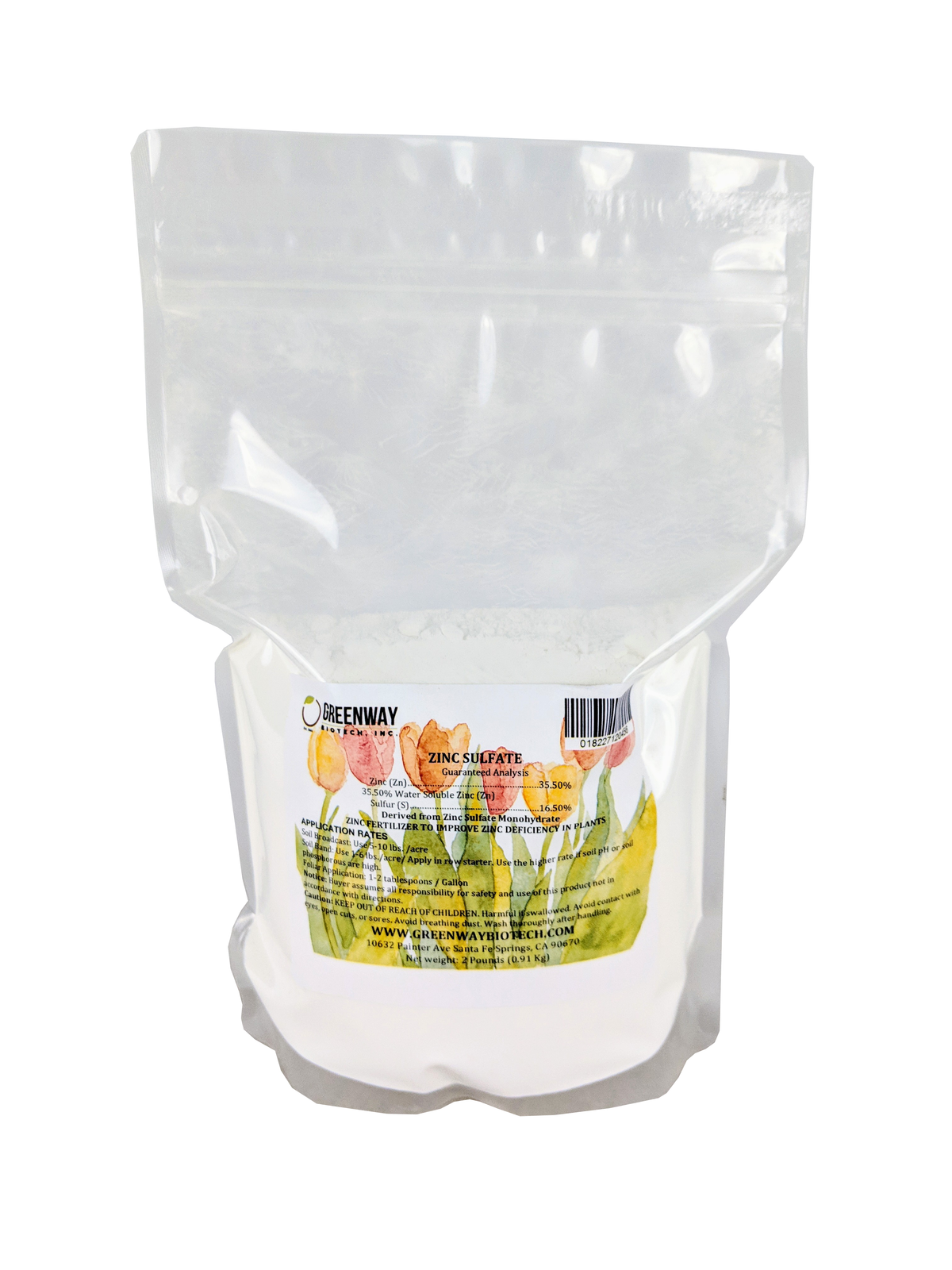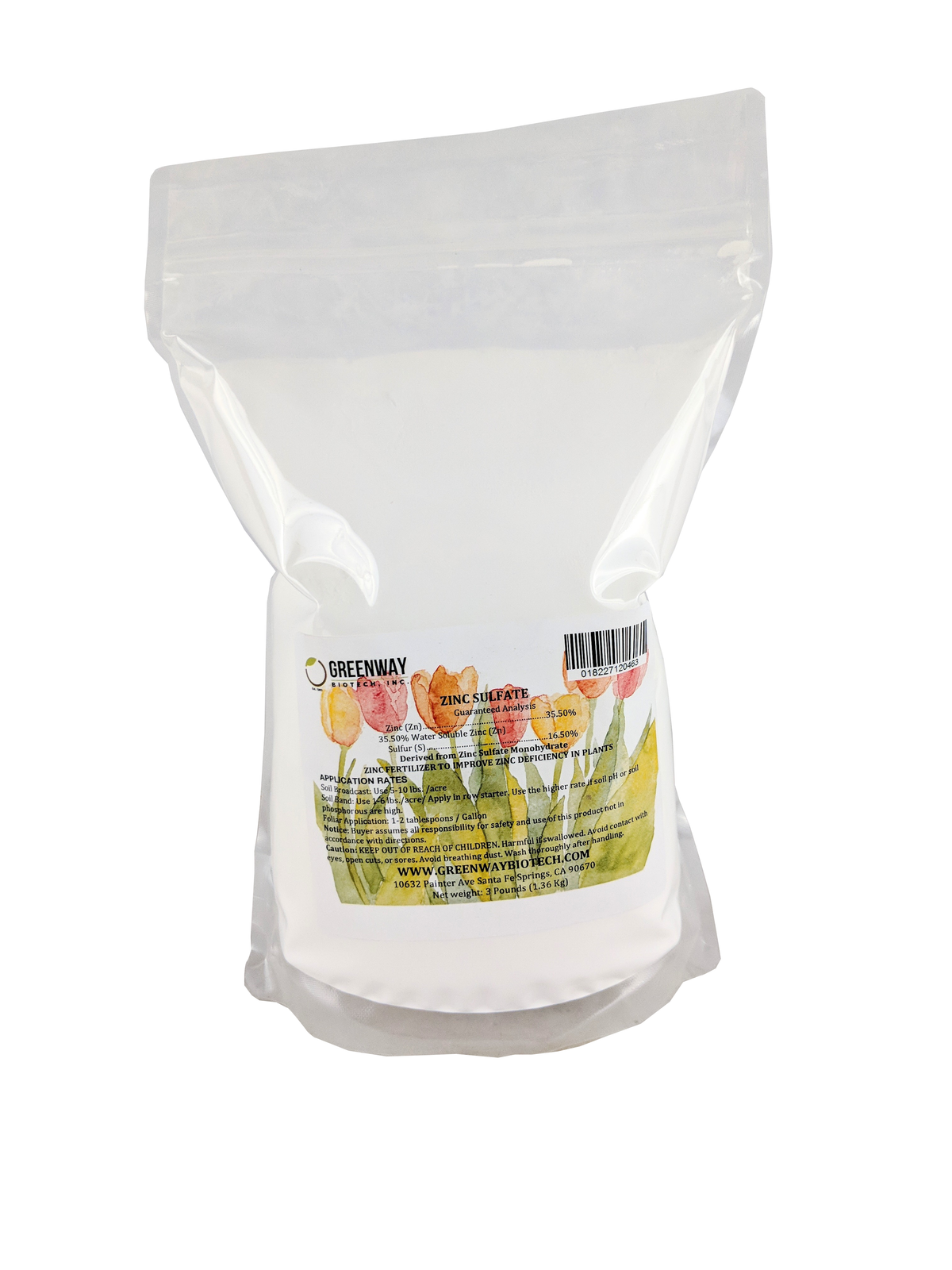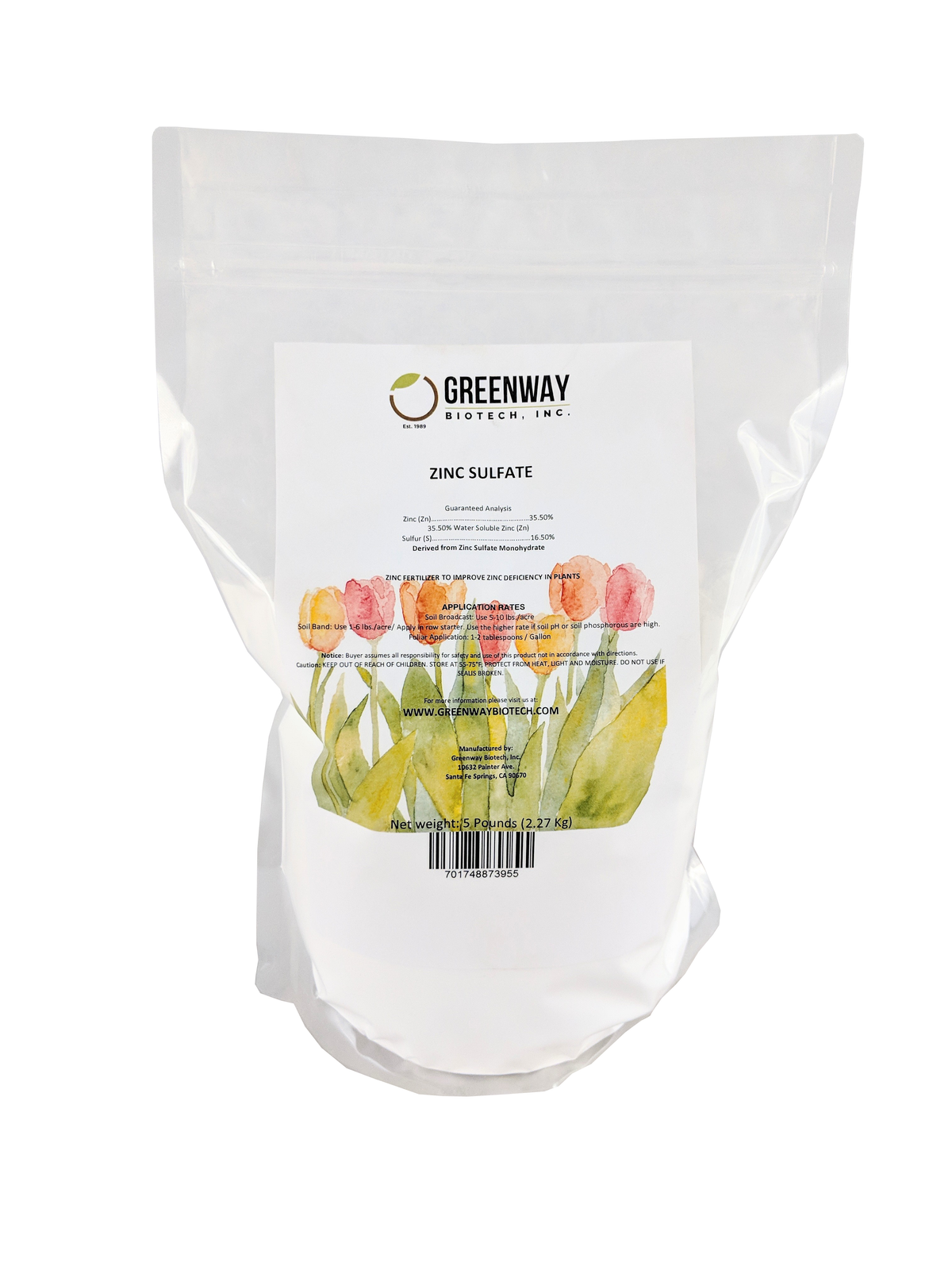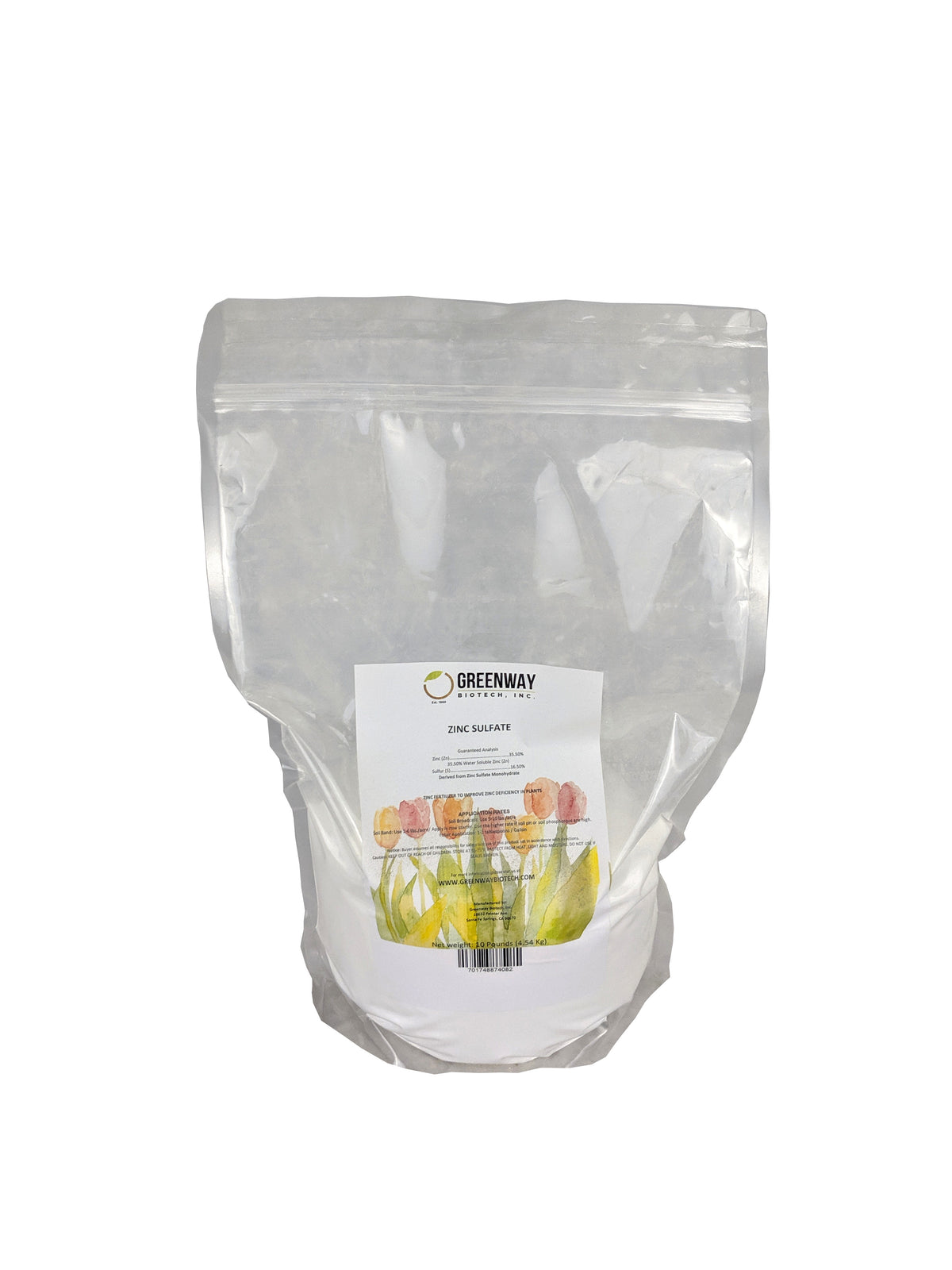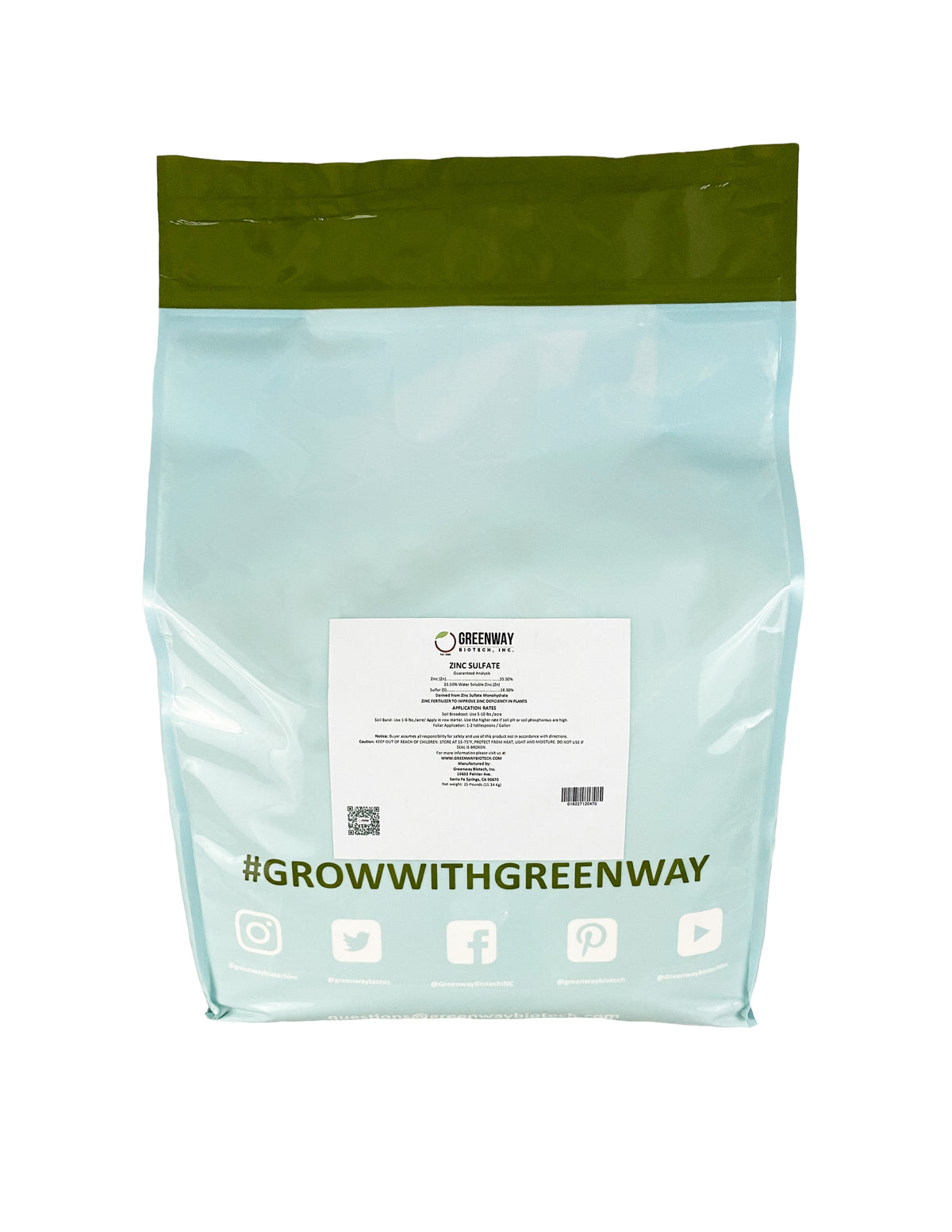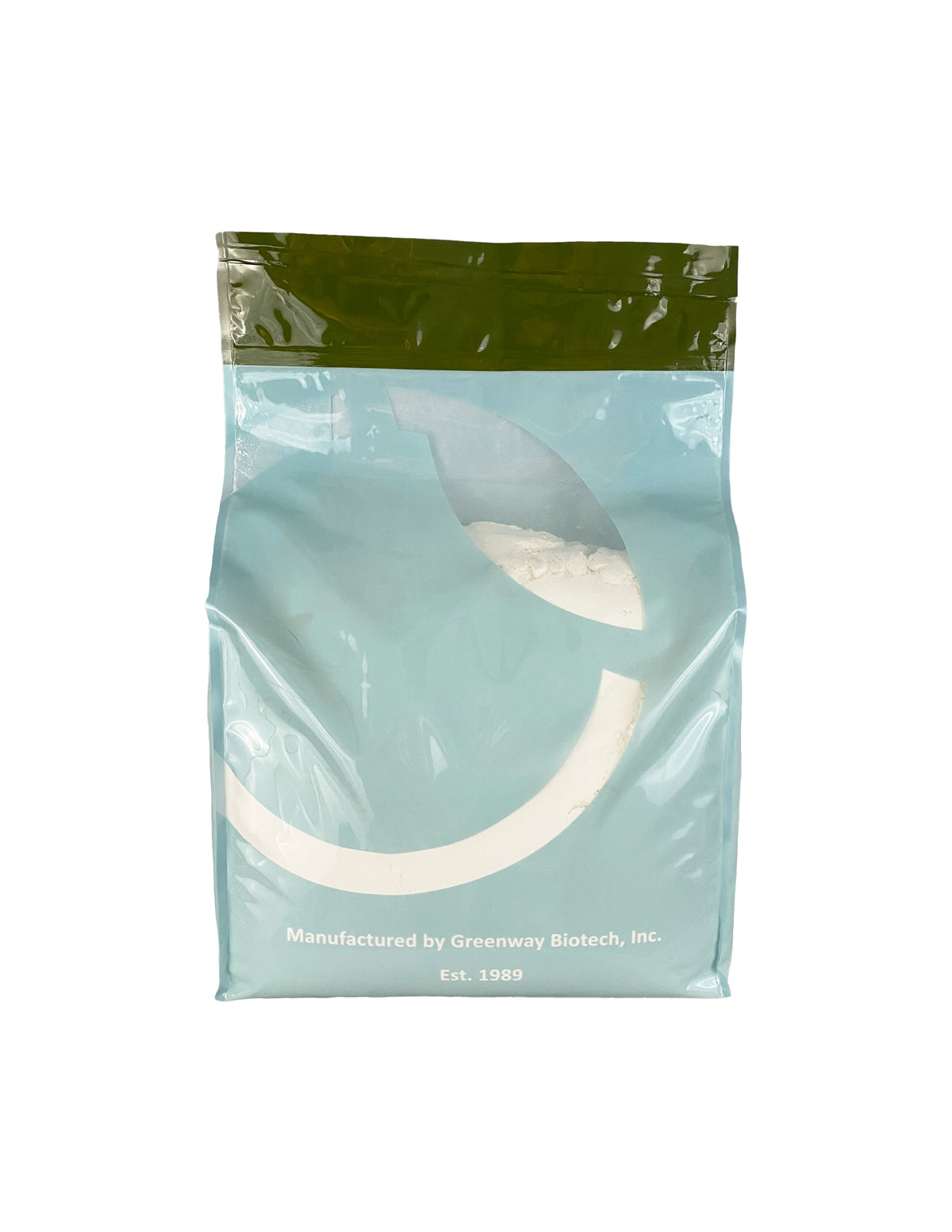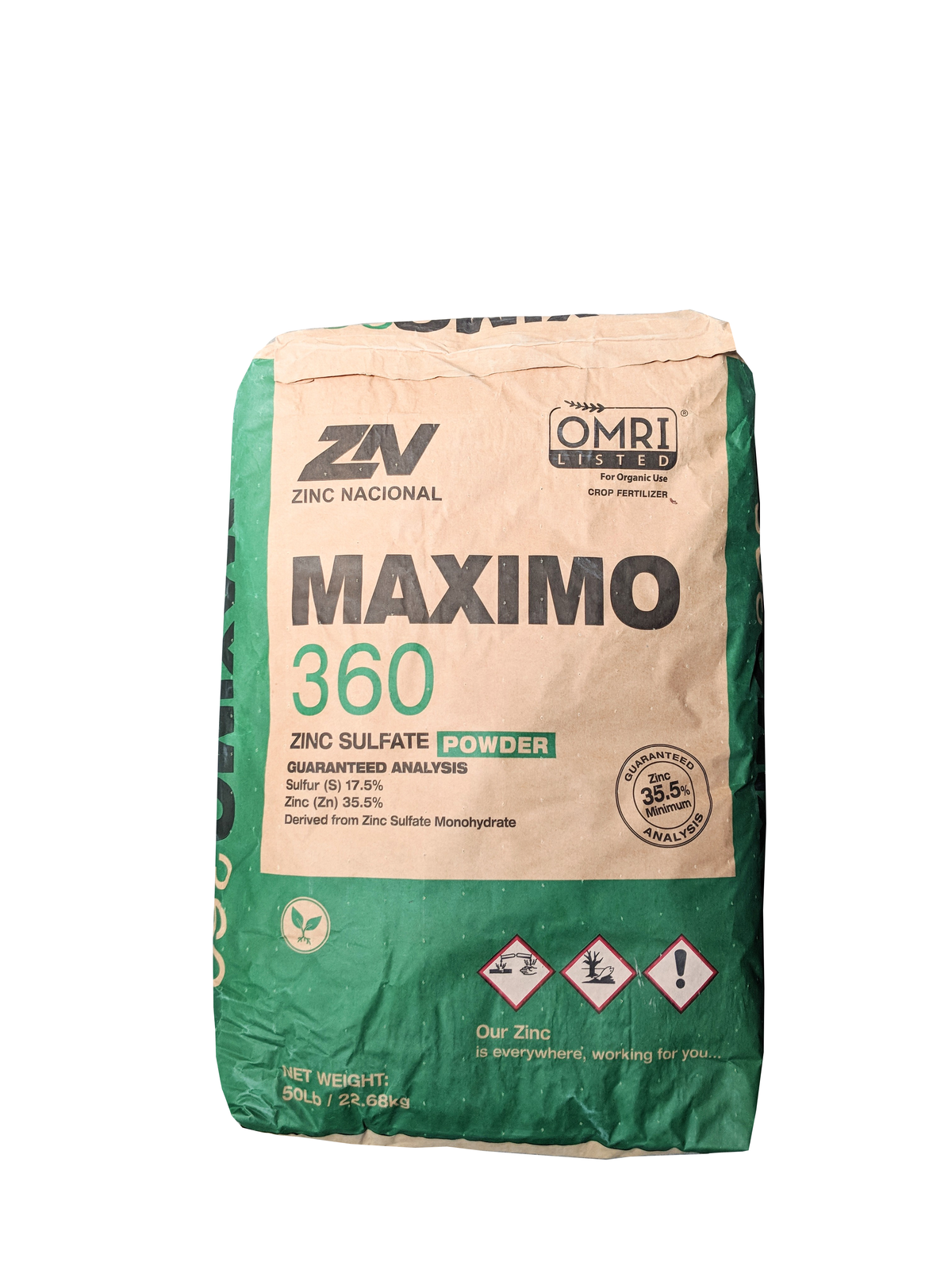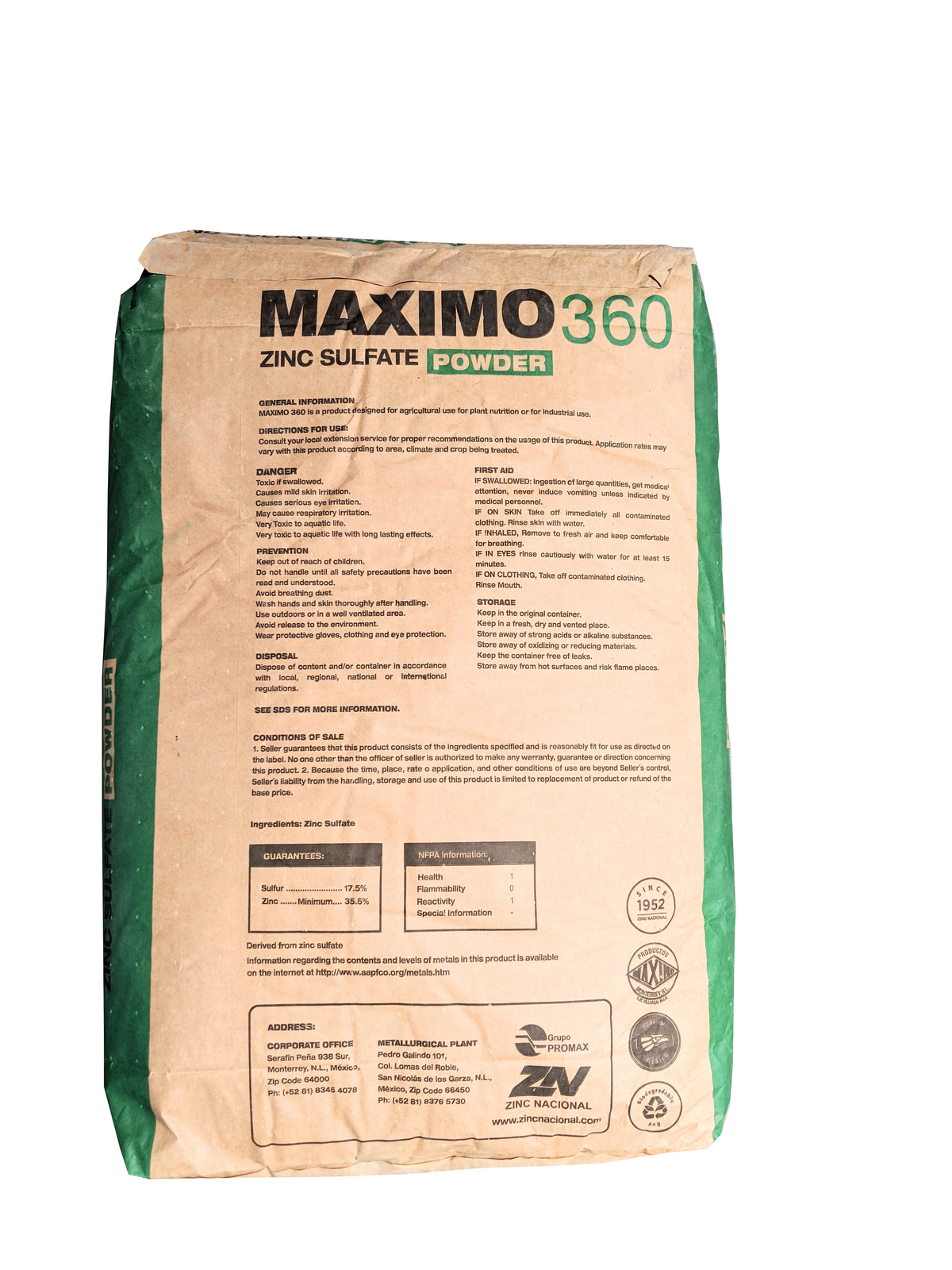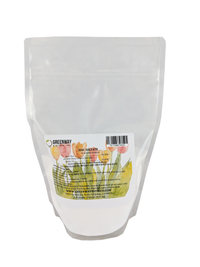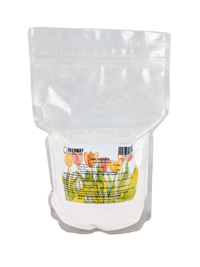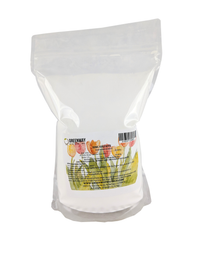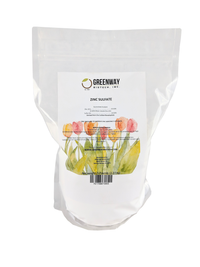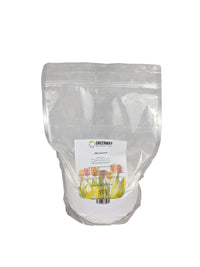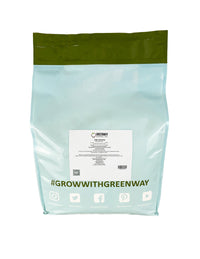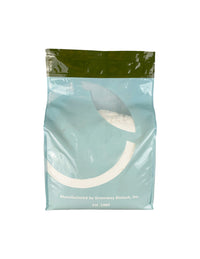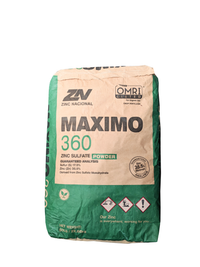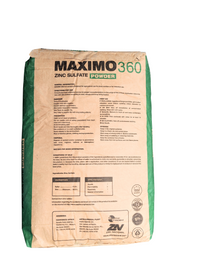NOTE: Depending on your shipping address, we may ship 50 pound items as two 25 pound bags.
We have all heard the quote "Let your medicine be your food and your food be your medicine". It has almost become a mantra among those that have come to believe in a more natural lifestyle and there is a good reason for this. It works.
Take what the WHO, not the rock band, the World Health Organization says about Zinc deficiency. According to them, 31% of the world populations suffers from Zinc deficiency and it causes problems ranging from hair loss and acne to severe neurological disorders.
Luckily, correcting this deficiency is easier than you think. You can make sure you and your loved ones are getting the nutrition you need by applying zinc sulfate as a fertilizer. It is all natural like most things, in nature, it comes with added benefits. You could use Zinc Sulfate to make natural herbicide and fungicide or use it to get rid of the moss on your roof.
Zinc sulfate from Greenway Biotech:
- Is 100% Water soluble
- Canadian produced
- Contains 35.5% zinc and 16.5% sulfur
- Is heavy metal-free
- Will naturally improve the health of your pecan and other nut and fruit bearing trees
How Can You add Zinc (Zn) to Your Food?
It is very simple. Zinc Sulfate fertilizer is very common for some plants such as Pecan trees but almost any plant would need some zinc to grow, bloom, and stay healthy.
As mentioned above the pecan trees or green plants such as lettuce need more zinc compared to others.
However, you could add even more Zinc Sulfate fertilizer to your soil (if you're growing edible plants) than your plants require and this zinc will be stored in plants and after you pick your fruit, vegetables, nuts, etc. they would have excessive amount of zinc, which your body would absorb when you consume these plants and this is a natural way of improving your zinc deficiency instead of taking expensive unnatural pills.
Other Common Uses of Zinc Sulfate:
Zinc Deficiency Treatment:
Greenway Biotech, Inc. Zinc Sulfate could also be used to treat zinc deficiency in plants, which may cause chlorosis (yellowing of leaves).
You could make your own natural (DIY) Zinc Sulfate solution fungicide (you could click on "How To" tab to find the instructions.)
Zinc Sulfate fungicide is a natural way of getting rid of unwanted weeds in your garden and unlike chemical fungicides, it doesn't harm our eco-system and environment.
Application Rate:
Foliar Application: 1-3 tablespoons per gallon of water.
Note: Zinc could be applied as a foliar application to help the leaves green up faster.
However, foliar application is not as efficient to improve zinc deficiency in soil because the transaction of Zinc (Zn) from leaves to the roots is limited.
Soil Broadcast: 14-30 pounds of Greenway Biotech, Inc. Zinc Sulfate per acre (equivalent of 5-10 lbs./acre zinc).
Note: Apply in row starter. Use the higher rate if soil pH or soil phosphorus levels are high.
Soil Band: 3-17 pounds of Greenway Biotech, Inc. Zinc Sulfate per acre (equivalent of 1-6 lbs./acre zinc).
Note: Apply in row starter. Use the higher rate if soil pH or soil phosphorus levels are high.
Pecan Trees: Mix 2-3 pounds of Greenway Biotech, Inc. zinc per 100 gallon of water for a foliar application (or 2-3 tablespoons per gallon of water).
Note: We recommend applying
Urea in addition to your Zinc Sulfate solution.
However, since Urea is a very strong nitrogen fertilizer cannot be applied as a foliar application. Nitrogen improves zinc absorption in plants.
We suggest mixing 1/4 tablespoon of Greenway Biotech, Inc. Urea per gallon of water.
Note: Apply Zinc Sulfate solution to lower leaf surfaces because zinc is absorbed most through young leaves. Also, it should be applied in the early part of the season.
How to Use Zinc Sulfate as Natural Herbicide to Getting Rid of Unwanted Weeds:
How to Use Zinc Sulfate as a Moss Treatment (Part 1)
How to Use Zinc Sulfate as a Moss Treatment (Part 2)
Related Blog Posts:
Documentation:
Frequently Asked Questions:
Note: This product is not registered to be used in Organic gardening in the state of California (except for the 50-pound bag).
